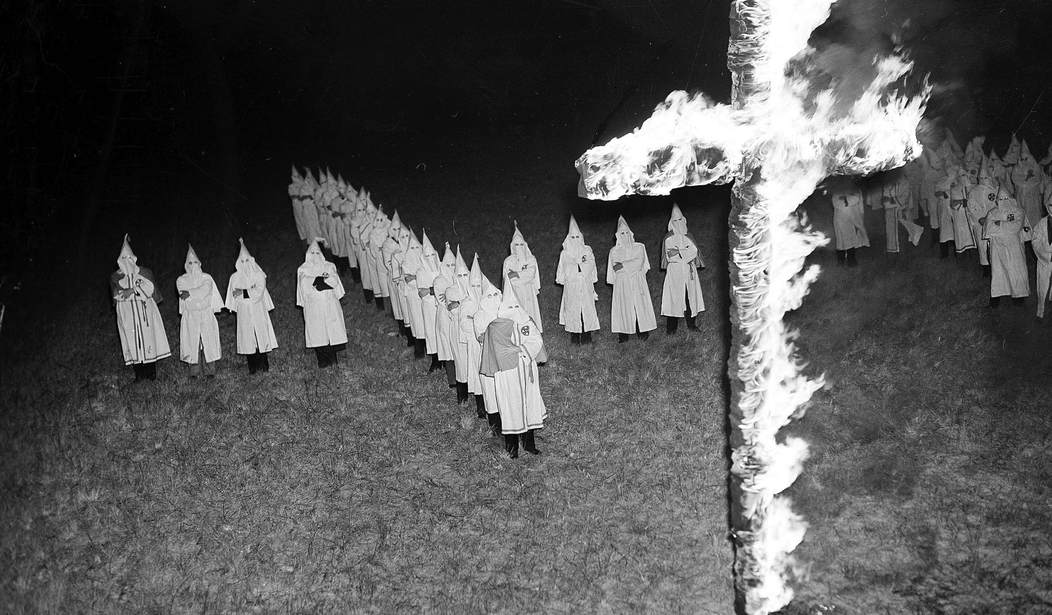In oral arguments before the Supreme Court in Masterpiece Cakeshop v. Colorado Civil Rights Commission Tuesday, President Trump’s solicitor general, Noel Francisco, argued that Colorado forcing baker Jack Phillips to bake a same-sex wedding cake would be akin to forcing an African-American sculptor to make a cross for a Ku Klux Klan rally.
This shocking argument makes more sense than it might at first appear. The Colorado commission ruled that it could force Jack Phillips to bake a same-sex wedding cake, accusing him of discriminating against the homosexual couple who requested it. Phillips argued, however, that he had a free speech right to refuse that request, and that the government cannot compel him to speak through the artistry of a wedding cake.
Phillips testified that when he refused to bake the cake in 2012, he also offered the homosexual couple to sell them anything else in his shop, and even to bake something else for them. The problem wasn’t the customers or their sexual orientation, but the nature of the event he would be supporting.
Francisco, Trump’s lawyer, took up that claim.
“When you force an African-American sculptor to sculpt that cross for a Klan service, you are transforming his message,” Francisco explained. “He may want his cross to send the message of peace and harmony. By forcing him to combine it with that expressive event, you force him to send a message of hate and division.”
Trump’s lawyer referenced the 1995 Supreme Court case Hurley v. Irish-American Gay, Lesbian and Bisexual Group of Boston, in which the Court decided that a parade did not have to allow a speaker to join the parade.
“In Hurley, we couldn’t force a parade to include a particular speaker,” Francisco said. “And here, your Honor, we don’t think you can force a speaker to join the parade. Because when you force a speaker to both engage in speech and contribute that speech to an expressive event that they disagree with, you fundamentally transform the nature of their message from one that they want to say to one that they don’t want to say.”
In his conclusion, Francisco said that “if you were to disagree with our basic principle, … you really are envisioning a situation in which you could force, for example, a gay opera singer to perform at the Westboro Baptist Church just because that opera singer would be willing to perform at the National Cathedral.”
The problem in Masterpiece Cakeshop, as in the case of the black sculptor or the gay opera singer, “is when you force somebody not only to speak, but to contribute that speech to an expressive event to which they are deeply opposed.”
Justice Anthony Kennedy, a reliable advocate for free speech who has made gay rights the centerpiece of his legacy — writing the 2015 Obergefell v. Hodges decision legalizing same-sex marriage — seems the central swing vote in the case. In oral arguments, he seemed to side with Phillips.
“Tolerance is essential in a free society, and tolerance is most meaningful when it’s mutual. It seems to be that the state [of Colorado] in its position here has been neither tolerant nor respectful of Mr. Phillips’ religious beliefs,” Kennedy said. He also noted that “accommodation is quite possible” because “there were other … good bakery shops that were available.”
Justice Samuel Alito noted the apparent “discriminatory treatment based on viewpoint” the Colorado commission engaged in when it came to Phillips’ case. He noted the commission’s hypocrisy on the issue of denying cakes.
In 2015, the body ruled that another bakery, Azucar Bakery, could refuse to bake cakes with Bible verses condemning homosexual practice. The commission defended that denial of service, but refused to give Phillips the same treatment.
“The commission had before it the example of three complaints filed by an individual whose creed includes the traditional Judeo-Christian opposition to same-sex marriage, and he requested cakes that expressed that point of view, and there were bakers who said no, we won’t do that because it is offensive,” Alito said.
“And the Commission said: That’s okay. It’s okay for a baker who supports same-sex marriage to refuse to create a cake with a message that is opposed to same-sex marriage,” the justice continued.
He further noted that Phillips “would not sell a wedding cake that expresses approval of same-sex marriage” to anyone, be they straight or gay, white or black, male or female.
While it is impossible to predict the outcome of the case based on these preliminary arguments, they do suggest that Phillips’ case holds water and may yet prevail. This is important, because if Phillips loses, the government could compel other forms of speech as well.
It is unlikely that a black sculptor would be forced to craft a cross for the Klan, but the example does illustrate just how damaging it can be to force an artist to contribute to an expressive event which he finds deeply offensive.









Join the conversation as a VIP Member